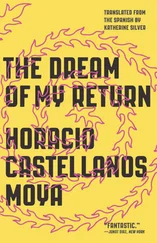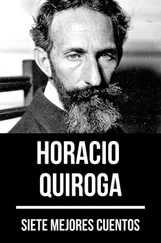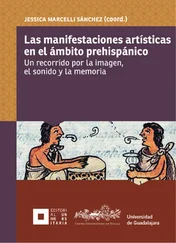They are advancing parallel to the coast, not far beyond the breaking waves.
Clemen realizes the house is merely a spot in the distance, a blotch against the green of palm trees, almonds, and coconut groves; then he turns and looks forward, and the sea wind blows in his face.
“The canoe is strong. It hasn’t failed me yet,” the guide says from the bow.
A flock of seagulls fly over the waves in the opposite direction.
“You think he’ll turn us in?” Clemen asks, looking at half a dozen abandoned-looking shacks lined up along the beach under the glaring sun; he’s smoking frantically, compulsively, one puff after another.
They are standing on the small broken-down jetty where Mono Harris has left them. He gave them each a hug, wished them the very best of luck, and asked them to send word once they’d reached the American base in Punta Cosigüina; then he rushed off. The guide showed them the canoe tied to the jetty, and asked them to wait; he’d go get the two oarsmen and bring the rest of the equipment needed for the crossing.
“I don’t think.,” Jimmy starts to say, carefully checking out the canoe: he wonders if it is strong enough for the high seas; he figures it’s about fifteen feet long; inside, over a net spread out on the floor of the boat, the guide has placed the bag of food, and they have put down their knapsacks and the shotgun.
“There’s something about him I don’t like,” Clemen says.
“What?”
“The guide. ”
“I told you, if you don’t want to go, you can stay here.”
A couple of young women are walking down the beach, each with a basket on her head; they’re following the line of foam the waves leave behind as they retreat, stamping their bare footprints into the wet sand.
“I don’t trust this canoe,” Clemen says, then turns to look at the women. It’s been exactly twenty days since he’s slept with someone; the night before he counted while sitting in the sand, alone, facing the dark sea, wanting to scream like a madman or jerk off. He throws the cigarette butt into the water.
“What do you know about canoes?” Jimmy asks.
The women walk toward the jetty; a gust of wind blows their white dresses tight up against their bodies. They walk past.
“Where do you think they’re going?” Clemen wonders out loud without taking his eyes off them.
“The things you think about.,” Jimmy says in a tone of reproach.
“What the hell do you want me to think about? Another week in that house and I would have ended up screwing Sóter. ”
“Here comes Adrián and the oarsmen,” Jimmy says. Then he takes out his pocket watch and mumbles, “We’re still in time to catch the current.”
They’ve appeared from between the shacks; they walk quickly toward the jetty. The guide is carrying a rolled-up sail; the two oarsmen are carrying a heavy barrel between them.
“What’re they carrying in there?” Clemen asks.
“Drinking water,” Jimmy says as he starts toward them.
Clemen turns, squinting, to the metallic blue horizon; then he looks at the clear sky. He rubs his face with both hands.
“I hope I don’t get seasick,” says Clemen, sitting on the starboard side facing the open sea, both hands clutching the side of the canoe; Jimmy is on the port side, his eyes glued on the coast, the shotgun held between his legs.
“You feel sick?” Jimmy asks him.
Clemen turns to look at the guide, who is back on the bow peeling an orange and throwing the peels into the sea.
“No,” he says, “but I’m not used to being in a boat.”
“What about when you went to Europe with your parents?”
The canoe is moving perpendicular to the coast, heading slowly out to sea, rocking as it goes.
“That was ten years ago,” Clemen says, “and this isn’t anything like an ocean liner.”
The fat oarsman looks at Clemen and smiles. The other, an emaciated man with one eye, hasn’t lifted his head; his eyes remain on the floor of the canoe.
“You think we’ll catch the current?” Jimmy asks the guide.
He has just popped half the orange into his mouth and can’t speak. He gestures with his head toward San Nicolás, the jetty they left about ten minutes before, which they can still see from this distance in spite of the glare.
Jimmy turns around and squints: a boat is approaching the jetty. The metallic shine is clear, unmistakable.
“I think we’re in luck,” the guide says then leans over the water to rinse off his hands.
Clemen turns to look. At first he’s baffled, but a few second later he understands: he blinks anxiously, swallows hard, then turns to look out to sea.
The oarsmen, their backs to the jetty, haven’t seen a thing.
“When will you raise the sail?” Jimmy asks the guide, as if nothing at all had happened.
The guide picks his teeth with his fingers, determined to get out the last pieces of orange.
“We’ve got a while yet,” he says.
Clemen leans over to Jimmy, cupping his mouth with his hands, and whispers in his ear, “What if the soldiers saw us and decide to come after us?”
“We’re too far away,” Jimmy murmurs. “You can relax.”
The one-eyed oarsman has a bout of coughing, but he doesn’t stop rowing or look up.
Soon the boat and the jetty have become a blur, quivering through the mist and the shimmering glare.
“What did you think of Don Mincho’s livestock?” the guide asks as he moves toward the center of the canoe and the barrel of drinking water. “That orange was too sweet,” he says as he takes the drinking gourd filled with water out of the barrel.
Clemen again grabs hold of the sides of the canoe, which is rocking sharply from the guide’s movements.
“Good stock,” Jimmy says, “though we still haven’t decided what to buy.”
The guide gives him a sly look of complicity.
The coast has turned into a brown line. Jimmy shoots a parting glance at the jetty and San Nicolás, where only a few spots of color still sparkle.
“I want some water, too,” Clemen says. “You guys want?” he asks the oarsmen.
“Too soon for them,” the guide responds quickly.
The fat oarsman smiles again.
“Those shitfaces make me nervous,” Clemen whispers in Jimmy’s ear, looking at the oarsmen out of the corner of his eye. “They haven’t opened their mouths since we left.”
“Not everybody’s a big mouth like you,” Jimmy answers.
A breeze begins to blow; the canoe picks up speed.
The guide raises his hand and stretches out his palm; then he licks his palm and raises it again, swiveling it around to find the direction of the wind.
“Time to raise the sail,” he says, moving toward the middle of the canoe. Clemen and Jimmy make room for him.
“Careful.,” Clemen cries, tense, again grabbing onto the side of the boat.
The guide and Jimmy lift the mast and unfurl the sail.
For the first time the one-eyed oarsman looks up; he smiles, toothless. The fat oarsman turns around, looks at the sail, and also flashes a smile. They say nothing, but they decrease the rhythm of their rowing.
The canoe moves forward faster, as if it were skimming over the water.
Jimmy lets out a shout of joy.
“Take it easy, pirate.,” Clemen cries, without letting go of the side, without even relaxing his grip.
The guide stays next to the mast, manipulating the sail; Clemen and Jimmy have moved to the bow.
“We got away from them.,” Jimmy says, a big smile on his face, raising and dropping his eyebrows several times in jest.
The breeze turns into a strong wind; the sail swells.
The guide repeats that they’ve got luck on their side; he looks off into the metallic blue sky, the immense and empty horizon, where there is no other boat anywhere in sight.
Читать дальше












